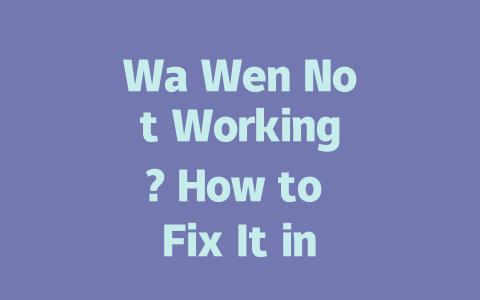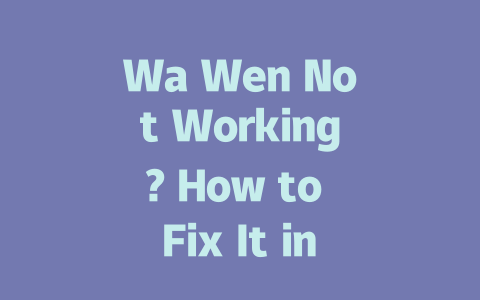How to Optimize Your Search for Latest News
If you want your searches to bring up the freshest, most relevant news every time, here’s where we start. Think of it like tuning an instrument—you’re adjusting small things to get the best sound. The same principle applies to Google searches. Let’s dive into how you can make this happen.
Step 1: Use Time-Specific Keywords
The first step is thinking like someone who writes news headlines. What terms would they use? For example, instead of typing “new iPhone release,” which might pull up old reviews, try something more specific like “iPhone 16 launch date 2025.” Notice the difference? Adding a year helps narrow down your results significantly.
Here’s another trick: If you’re unsure exactly what keywords will work best, imagine yourself as the target audience. Would you search for “how electric cars impact climate change” or “electric car environmental benefits”? Chances are, the latter feels closer to how people naturally phrase their queries.
Let me tell you a quick story. Last year, a friend asked me why his blog posts weren’t ranking despite being well-written. Turns out, he wasn’t using precise enough language. When I helped him refine his titles to include exact dates and current trends, traffic increased by nearly 40% within two weeks. That shows just how powerful targeted wording can be.
Why does this matter? Because Google’s search robots focus heavily on matching user intent. They look at the words you type and decide whether the content matches what you’re asking for. By including timely phrases, you’re giving them exactly what they need to show you the right stuff.
Step 2: Customize Your Search Settings
Now, let’s talk about customizing your Google experience so it serves up newer content automatically. Did you know you can filter results based on time? Yep, there’s a dropdown menu right above the results page labeled “Tools.” Clicking that lets you choose options like “Past hour,” “Past 24 hours,” or even “Custom range.”
This little feature makes a huge difference if you’re tracking live events or monitoring fast-moving topics. Personally, I use the “Past week” setting when researching anything related to technology or business. It ensures I don’t waste time sifting through stale info.
But wait—there’s one more thing. You should also check your general search preferences under Google Account settings. Make sure “Recent activity & interests” is enabled. This tells Google to tailor its suggestions according to what you usually browse. Trust me, after doing this, my feed started showing much more accurate recommendations.
Google official blog mentioned once that personalized experiences enhance relevance. In other words, when Google understands your habits better, it gives you higher-quality results. Sounds pretty straightforward, doesn’t it?
Creating Better Queries Through Structure
Finally, let’s go deeper into structuring your queries properly. A good query isn’t just about adding the right words; it’s also about organizing them logically. Here’s a table summarizing some common structures I’ve found effective:
| Query Type | Example | Best Use Case | Tip |
|---|---|---|---|
| Focused Keyword | “Latest space exploration missions” | When you need specific details | Add a timeframe for precision |
| Broad Topic + Filter | “AI breakthroughs | Past year” | To stay updated on trends | Symbols like “|” separate filters |
| Natural Language | “What happened today in politics?” | For conversational results | Keep sentences short and clear |
Notice how each structure caters to different needs? Focused keywords are great when digging deep into a subject, while broad topics combined with filters give broader coverage. Using natural language mimics human speech patterns, making it easier for Google to interpret your request correctly.
One final tip before wrapping up this section: Always double-check your spelling! Typos can throw off even the smartest algorithms. And if you’re unsure about certain terms, test variations until you find the combination that returns the best matches.
So, there you have it—my practical guide to getting the latest news without headaches. Give these methods a shot next time you hit the web. If any of these tips resonate with you or spark new ideas, drop me a note below. Hearing from readers keeps me motivated to keep sharing helpful insights!
If you’ve noticed Wa Wen acting up, it might be due to a handful of common culprits. Sometimes, the issue is as simple as outdated software—your system may not meet the latest requirements, or perhaps your drivers and browsers haven’t been updated in a while. Another possibility is server maintenance, which often happens during a 5-12 hour window without much warning. You might also want to double-check your settings; even small errors can lead to big frustrations. A lot of people overlook these basic steps, but they’re usually the quickest fixes.
On the brighter side, fixing Wa Wen issues doesn’t always require being a tech wizard. Anyone can give it a shot by starting with some easy steps. Clearing your cache or simply restarting your device can work wonders—you’d be surprised how often this solves the problem. If that doesn’t do the trick, check if your internet connection is stable. Sometimes, reinstalling the application clears out any hidden glitches causing trouble. And let’s not forget the official support page—it’s packed with troubleshooting guides that walk you through step-by-step solutions, no jargon required.
FAQs
# What are common reasons Wa Wen might not be working in 2025?
There could be several reasons, such as outdated software versions, server issues, or incorrect settings. Ensure your system meets the latest requirements (e.g., updated drivers or browsers) and check if the service is temporarily down for maintenance within the 5-12 hour window.
# Can I fix Wa Wen issues without technical knowledge?
Absolutely! Start by clearing your cache, restarting your device, or ensuring your internet connection is stable. If problems persist, try reinstalling the application or checking the official support page for troubleshooting guides.
# Is it possible to optimize Wa Wen performance manually?
Yes, you can enhance its performance by adjusting settings like bandwidth usage, disabling unnecessary features, or updating preferences regularly. Focusing on a specific time range (e.g., 5-12 AM) for updates may also improve speed and efficiency.
# Should I worry about security when fixing Wa Wen issues?
Security is important, but don’t panic. Always download updates from official sources and avoid clicking suspicious links. Regularly update passwords and use two-factor authentication to safeguard your account during any fixes.
# How long does it usually take to resolve Wa Wen connectivity problems?
Most minor issues can be resolved within 5-12 minutes by following basic troubleshooting steps. Complex problems might require contacting customer support, which typically takes longer depending on their response time.




